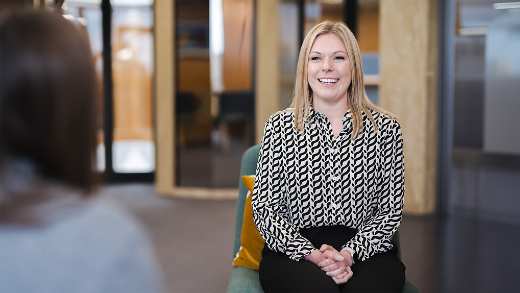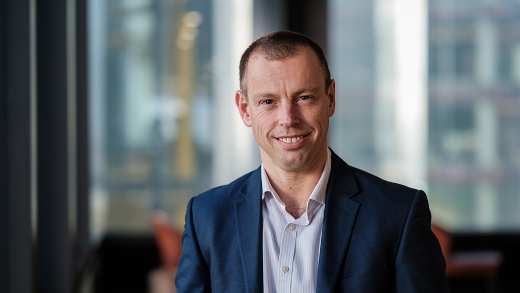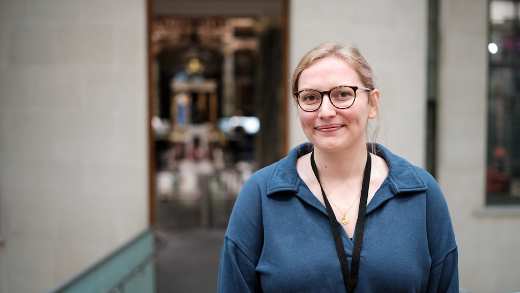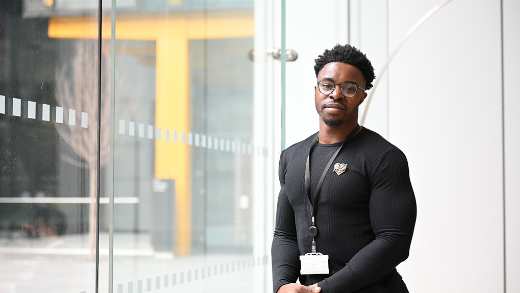Matthew is a customer engagement consultant at Aviva. Matthew also has Asperger's, which is an Autism Spectrum Disorder. Here he tells his story for World Autism Awareness Week.
Matthew is a customer engagement consultant at Aviva who lives with his fiancé Daniel and two cats, Crumbs and Custard. Matthew also has Asperger's, which is an Autism Spectrum Disorder. Here he tells his story for World Autism Awareness Week.
Living with Asperger's is different for everyone. Most people are diagnosed in their childhood, however for me it took a little longer as I was diagnosed at 18 years old.
School was hard, but manageable due to loving parents who adapted to my quirks regardless of a diagnosis. But moving to university changed my relationship with the world as I was no longer surrounded by people who just loved me regardless.
It has often felt like there is a societal pressure for me to fit into the world, rather than the world accommodating for my Asperger's.
The way that people are affected by Asperger's can vary, but for me it manifests as over stimulation (sight and sound), extreme anxiety, repetitive and highly focused behaviours, social communication/interaction challenges - all of which can lead to a meltdown. When you write it down in a list like this, it can seem like it’s all one constant panic attack, but thankfully it isn’t!
Over the years I have been privileged enough to build a supportive network of family, friends and colleagues who are aware of my quirks, what my triggers are, and can actually have a laugh with me when I misread a situation or have been unintentionally blunt. But it has taken a lot of time to learn how to vocalise what is stressing me out and what I need.
It has often felt like there is a societal pressure for me to fit into the world, rather than the world accommodating for my Asperger's. Adjusting for Asperger's or any disability isn’t difficult, it just challenges the status quo.
Latest figures from the Office of National Statistics state that just 22% of autistic adults are in any kind of employment. This is shocking - but from my experience, not surprising. The world of work is not friendly to neuro-diverse people. From applying for jobs to progressing once you’re in a role, it can feel like you’re trying to juggle with your hands behind your back.
From applying for jobs to progressing once you’re in a role, it can feel like you’re trying to juggle with your hands behind your back.
One of the most stressful things to see on a job application is “Must be flexible” or “Adaptable to change.” Do they mean occasional weekend work, being able to win at Twister, different shifts every week, being able to limbo or drastic changes in working practices every few months?
The truth is, change is scary for me.
I fall into repetitive routines that, if changed, cause me stress and anxiety. I can be flexible, but it may require more notice or adjustments in the way change is delivered. But trying to demonstrate that in an application or interview, to someone you are trying to convince you’re the best person for the job, is daunting to say the least.
Before working for Aviva, I had discounted myself instantly from so many jobs because the thought of “Will they understand I am not just being difficult” was crippling.
I have been incredibly fortunate that since working for Aviva I feel like I have been listened to.
And discrimination in the workplace is something that exists, whether intentional or not. At a former employer, I had raised that having my shift pattern changed last minute was causing me stress and I emphasised the importance of routine to me. I was told “Your routine has to become having no routine.” When I asked to be referred to occupational health, I was told there was nothing occupational health could do for me.
Plot twist… they could, and I was eventually referred after months of fighting. Several recommendations were made, but they refused to make them permanent. I became trapped in this job, feeling like I was a problem, and I should just feel lucky to have a job at all.
I have been incredibly fortunate that since working for Aviva I feel like I have been listened to. That’s not to say everything has always been perfect, and not everyone’s experience will be the same, but the key thing for me is that Aviva listens.
My hope for the future is that autistic people will not have to be lucky to find an employer that does what they legally and morally should.
If there is anything you take away from this, I hope it’s that listening to people who live with a disability, or face any type of discrimination, is the key to being more inclusive. There isn’t a one size fits all approach, but by listening to someone’s experience, successes, challenges, you can work together to create a better environment.
More information
To learn more about autism, find advice or guidance, or to find out how you can help, visit the National Autistic Society website.

















